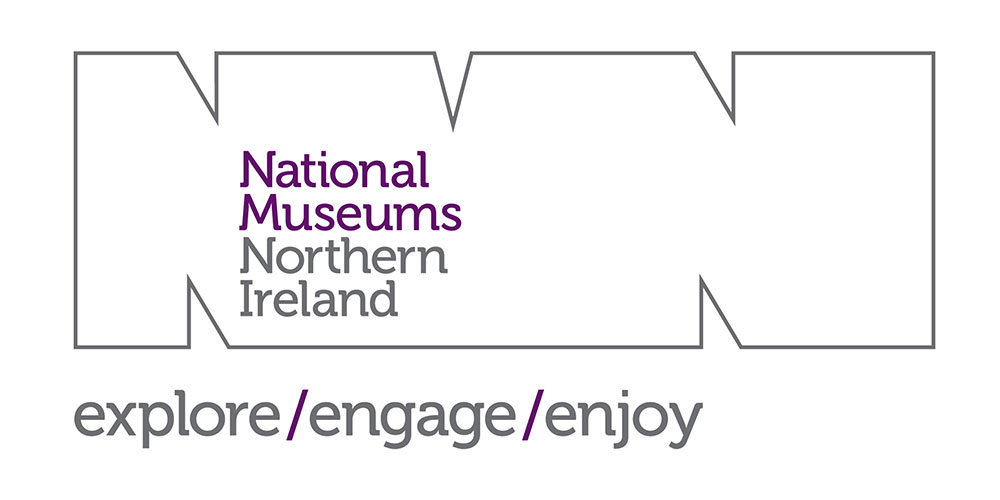Notes on the Phonology of a County Antrim Ulster-Scots Dialect
Part II: Diachronic Study i.e. the Historical Origins of the Dialect*
Historical Phonology
Robert J. Gregg
Consonants
In examining the Glenoe consonants in relation to those of ME we note that there are fewer differences between the mediaeval sounds and their modern reflexes than there are in the case of the vowels. The differences that do exist — which may or may not be parallelled in RP — can be summed up under the following heads:
(1) Glenoe lacks a consonant that appears in ME
(i) b
[ke:m] 'comb', [klæ̈m] 'climb', [ˈrʌml̹] 'rumble',
[ˈtæ̈mər] 'timber', [ˈtʌml̹] 'tumble', [ˈtræ̈ml̹] 'tremble',
Note in this connexion that the intrusive [b] of the standard language does not appear in the Glenoe words:
[ˈfʌml̹] 'fumble', [ˈgrʌml̹] 'crumble'; 'fine crumbs',
[ˈθæ̈ml̹] 'thimble'.
(ii) d
Finally: [bɑ:n] 'band', [blæ̈n] 'blind', [ɛ:n] 'end',
[ɛ:rn] 'errand', [fil] 'field', [grʌn] 'ground',
[kəin] 'kind', [kəül] 'cold', [rÜn] 'round', [ˈθü:zn̗] 'thousand'.
Medially: [ˈhæ̈nər] 'to hinder', [ˈhɑ:rle] 'hardly',
[hɑ:rn] 'harden', [ˈkɑ:nl̹] 'candle', [ˈθʌnər] 'thunder',
[ˌwɑ:nər] 'wander'.
(iii) f
[ˈhɑ:ŋkərtse] 'handkerchief', [məˈsɛ:l] 'myself',
[o:], [ə] 'of', [wərˈsɛ:lz] 'ourselves'.
(iv) g
[ˈɑ:ŋre] 'angry', [ˈfɑ:rdn̩] 'farthing', [ˈfæŋər] 'finger', [ˈlɑ:ŋər] 'longer', [ˈsæŋl̹] 'single', [strɛ:nθ] 'strength',
[ˈsʌmθən] 'something'.
(v) l
[bjü:] 'blue', [bɔ:] 'ball', [fü:] 'full', [hɑ:d] 'hold', [ˈkÜtər] 'coulter', [nɛü] 'knoll', [pjü:] 'plough',
[skɑ:d] 'scald'; 'tea', [ˈso:dźər] 'soldier', [ˈsʌðər] 'solder',
[śÜðər] 'shoulder'.
(vi) n
[kæ̈l] 'kiln', and surnames such as [ˈro:besən] 'Robinson'
(vii) r
[ˈkɑ:trιdź] 'cartridge', and frequently in words like [ˈjæ̈stəde] 'yesterday', [ˈgʌldəd] (for [ˈgʌldərd]) 'shouted incoherently', i.e. in the sequence interdental, schwa, r, alveolar, the r may drop out.
(viii) t
[biss] 'cattle (i.e. beasts)', [dźɔes] 'joist', [ɛ:mpe] 'empty',
[kʌrn] 'currant', [slɛ:p] 'slept', [wɑ:rn] 'to warrant'.
(ix) v
[dil] 'devil', [ˈəüər] 'over', [gi:] 'give', [gin] 'given',
[he:] 'have', [le:] 'leave', [swil] 'swivel'.
(x) w
[kə] 'quoth' (only the phrases [kəˈhi:] and [kəˈśi:] — 'quoth he, quoth she' — used in oral narration),
[kəˈte:śən] 'quotation', [ˈko:śənt] 'quotient', [ko:t] 'quote',
[kɔet] 'quoit'.
(2) Glenoe has an intrusive consonant which does not appear in ME or in RP
(i) [r]
[ˈkɑ:rke] 'khaki', [ˈlɑ:śərz] 'eye-lashes', [ˈlɔ:zənźərz] 'lozenges', [ˈpro:kər] 'poker', [ˈθræ̈sl̹] 'thistle'.
(ii) [t]
[jæ̈nst] 'once', [ˈsɛ:rtəntle] 'certainly', [ˈsθdəntle] 'suddenly'.
(3) Glenoe has a voiced consonant where ME or Early Modern English has its unvoiced counterpart
(i) [g] for [k]
[ˈgrʌml̹] 'crumbs'.
(ii) [d], or [d] (dental) for [t]
[ˈkɛ:rpəndər] 'carpenter', [kəmˈpɛ:dətər] 'competitor'
[prɔ:desən] 'protestant'.
(iii) [v] for [f]
[kɑ:v] 'calf'.
(4) Glenoe has an unvoiced consonant where ME has its voiced counterpart
(i) [k] for [g]
[kriś] 'grease', [ˈtɑ:ŋkl] 'tangle (a species of sea-weed)'
[ˈtræ̈kər] 'trigger'.
(ii) [t] for [d]
[ˈde:vət] 'David', [əˈhæ̈nt] 'behind', [ˈfɔ:rət] 'forward',
[ˈhʌzbənt] 'husband', [ˈkʌbərt] 'cupboard'.
(iii) [tś] for [dz]
[ˈkɑ:bιtś] 'cabbage', [ˈlʌgιtś] 'luggage', [ˈpɑ:rιtś] 'porridge'.
(5) Glenoe has a different consonantal phoneme as compared with ME
(i) [d], [d] for [ð]
[ˈfɑ:rdər] 'farther', [ˈfɑ:rdn̗] 'farthing'.
(ii) [dź] for [dj]
[dźü:] 'dew'; 'due', [dźʌk] 'a duck', [reˈdźÜs] 'reduce'.
(iii) [ð] for [d]
[ˈblɛ:ðər] 'bladder', [ˈfɛ:ðər] 'father', [ˈfɔ:ðər] 'fodder', [ˈlɛ:ðər] 'ladder', [ˈpÜðər] 'powder'.
(iv) [h] for [f]
[hɛ:θ] 'faith!' (as an interjection).
(v) [l] for [n]
[ˈtśæ̈mle] 'chimney'.
(vi) [n] for [l]
[kəˈno:g] 'collogue, confabulate'.
(vii) [n] for [m]
[ˌgrəindˈæ̈n] 'grimed in', [ˈpɑ:ntəˌməim] 'pantomime'.
(viii) [n] for [ŋ]
[ˈdźÜrən] 'during', [ˈgo:ən] 'going', [ˈɔ:neθən] 'anything'.
(ix) [r] for [l]
[ˈdźəˈrü:z] 'jalouse, surmise'.
(x) [r] for [t]
[ər] 'out of (in phrases such as [ˌgɔ:nərˈðɑ:t] 'go on out of that').
(xi) [ś] for [s]
[kriś] 'grease', [ˈpæ̈śˌməül] 'pismire, ant', [rɛ:nś] 'rinse', [slÜś] 'sluice', [ˈśʌnərz] 'cinders'.
(xii) [t] for [l]
[ˈstɛ:rekət] 'hysterical' (with aphaeresis).
(xiii) [tś] for [tj]
[ˈfɔ:rtśən] 'fortune', [tśÜb] 'tube', [tśʌg] 'tug', [tśʌx] 'tough'.
(xiv) [v] for [b]
[ˈge:vl̹] 'gable', [ˈmɛ:rvl̹] 'marble (plaything)'.
(xv) [v] for [w]
[ˈɛ:rvn̗] 'Irwin', [ˈkɑ:rve] 'caraway'.
(6) Glenoe has one consonant where ME has two others
(i) [ś] for [sj]
[śü:] 'sew', [śÜt] 'suit', [ˈtæ̈śe] 'tissue'.
(ii) [ź] for [zj]
[mæ̈źər] 'measure', [ˈfʌźənləs] 'tasteless', [ˈpʌźən] 'poison'.
(7) Metatheses
(i) [r] + vowel for vowel + [r]
[brʌst] 'burst', [krʌdz] 'curds (and whey)'.
(ii) vowel + [r] for [r] + vowel
[ˈbæ̈rse] 'bristly', [gæ̈rn] 'complain' (ultimately < OE grennian, cp. grin),
[ˈhʌnər] 'hundred', [skɑ:rt] 'scratch', [ˈwɑ:lˌkɑ:rsəz] 'water-' (lit. well-) 'cress'.
(iii) [ml] for [lm]
[ˈʍɑ:ml̹] 'overturn (a bowl, a box, etc.)' cp. (over)whelm.
(8) Glenoe has kept certain consonants which have disappeared in other English dialects
(i)
In Glenoe /h/ is generally heard for orthographic h except in weakly stressed pronominal forms:
[ˈgi:ət ˌte: əm] 'give it to him'
[e həzˈ lo:st ιzˈ e:n] 'he has lost his own'
On the other hand, where RP has restored /h/ in certain spelling pronunciations, Glenoe has no /h/:
[ɛ:rb] 'herb', [ˈɔ:spæ̈tl̹] 'hospital'
(ii)
In Glenoe /r/ has not been lost in final or preconsonantal positions, except in the few cases mentioned above under (I) (vii). Parasitic /r/ is unknown.
(iii)
Unvoiced /w/ (i.e., /ʍ/) corresponds to orthographic wh, except where the spelling is not etymologically justified, as in whelk, whole, whore, whooping-cough, which in Glenoe are pronounced [wʌlk], [he:l], [ˈhü:ər], [ˈhÜpən-ˌkɔ:x]
(iv)
Glenoe has preserved /w/ in [twɔ:] 'two'
(v)
The unvoiced velar fricative /x/ is preserved in many Glenoe words including:
[bɔ:xt] 'bought', [drɑ:xt] 'draught', [ɛ:xt] 'eight', [hix] 'high', [lɑ:x] 'laugh', [sæ̈x] 'sigh', [sʌx] 'sough', [strɛ:xt] 'straight', [trɔ:x] 'trough' but not in delight (Glenoe [dəˈləit]), where the gh is unetymological
(9) Glenoe occasionally has a different consonant from RP not as a result of a sound change, but probably because of Scandinavian influence
(i) /g/ represents RP /dź/
[bræ̈g] 'bridge', [ræ̈g] 'ridge'
(ii) /k/ represents RP /tś/
[kɑ:f] 'chaff, [kæ̈st] 'chest, box'
Introduction | Diachronic Aspect | Diphthongs | Consonants | Notes

